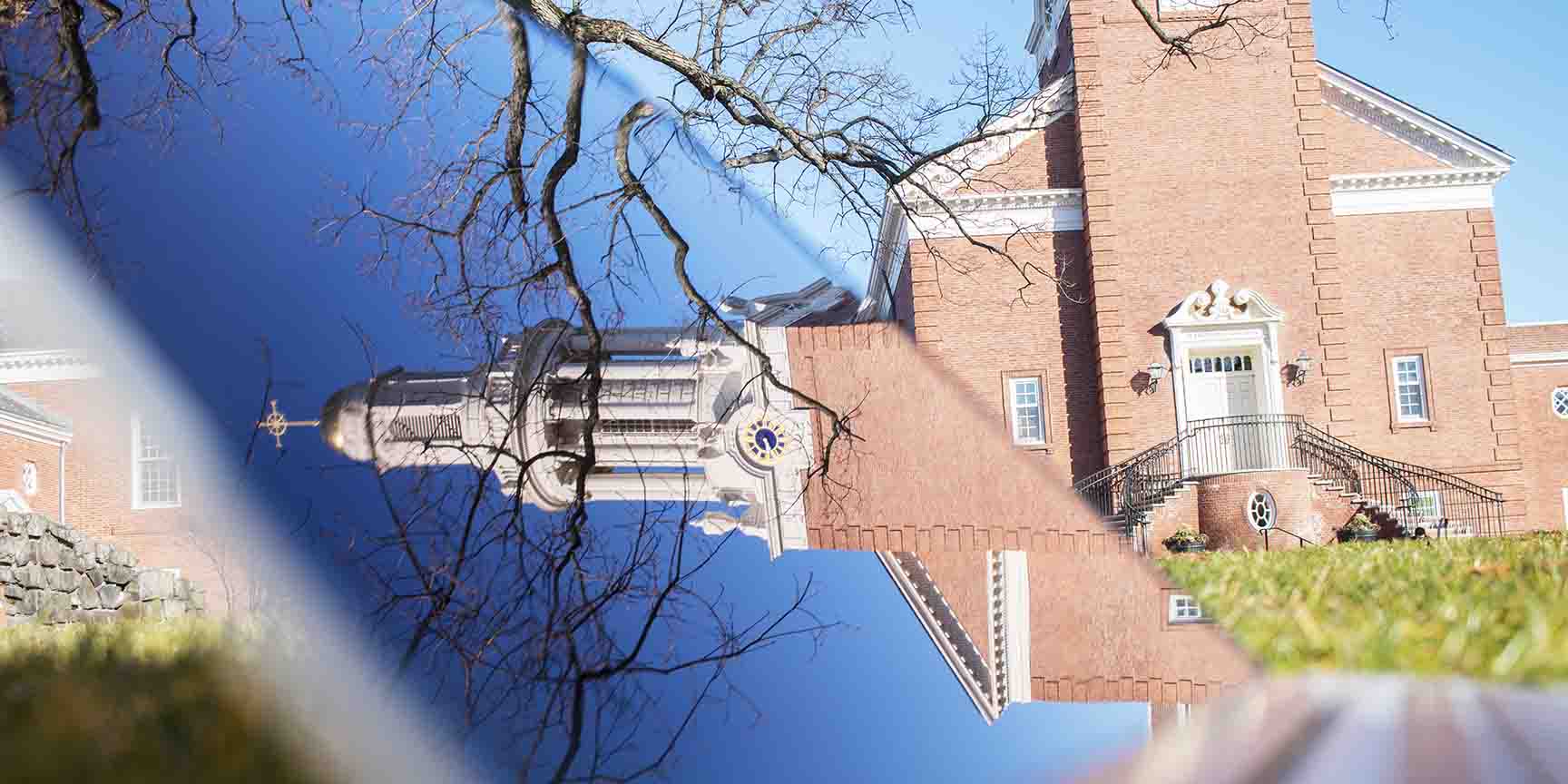
At the center of the Yale Divinity School’s Sterling Divinity Quadrangle stands the Marquand Chapel, an emblem of the school’s commitment to the Christian faith. A small minority of Divinity School students, however, do not belong to this faith — or any church or religion.
According to Director of Communications Tom Krattenmaker, the majority of atheist and nonreligious students at the school — a small portion of the approximately 400-person student body — pursues a concentrated master of arts in religion in preparation for a doctoral program in religious studies. In the concentrated M.A.R., which offers specializations in academic areas such as religion and the arts, Asian religions and philosophy, students work closely with a professor affiliated with the academic area and often take courses at other schools and departments throughout Yale. Furthermore, nonreligious students pursuing the master of divinity degree, which is designed to prepare students for a career in the ministry, have the option do their required field internship with the Yale Humanist Community instead of with a traditional church.
“[Atheist and nonreligious students] enrich the conversation because I don’t think those of us who are practicing faith of any kind can be complacent in their presence, and the conversations can be challenging in the best kind of a way,” said Assistant Dean for Pastoral Concerns Julie Kelsey, who works in the Student Affairs Office. “We will be forced to articulate our faith positions and why we do what we do in ways that are different than people who are just like us.”
Kelsey, who teaches an introductory preaching course at the Divinity School, said nonreligious or atheist students take her class for a diverse range of reasons, including engaging in dialogue with peers who practice different faiths, practicing public speaking skills and learning to collaborate with their religious peers on social justice projects.
She added that although the Divinity School is an ecumenical Christian institution, it welcomes and treats students of all religious backgrounds as “complete peers.” Though Kelsey said it was hard to say whether the number of atheist and nonreligious students at the Divinity School has increased over time, she did note that in recent years, nonreligious students have been more vocal in discussing their beliefs and contributing to discussions.
Before attending the Divinity School, Daniel Gullotta DIV ’17, a student in the history of Christianity M.A.R. concentration with a specialization in American Christianity, pursued his study to become an Anglican priest in the Anglican Church of Australia. However, following a theological crisis, he left the church and seminary and entered the secular workforce. After starting a new chapter of his life in the United States, he realized that though he identified as an atheist, his true passion was still the study of religion and scripture, and he decided to attend the Divinity School to one day become a religion scholar and professor.
“The joke I used is that I didn’t miss God, but I missed his Bible and his people, so even without God, I thought scripture and faith were valid and important and meaningful,” Gullotta said.
Gullotta added that many of his peers were surprised to find out about his atheism and did not understand why he decided to attend a Christian divinity school instead of a secular religious department. Still, he described the Divinity School community as “accepting” and “welcoming” of his atheism, citing support for his academic pursuits and invitations to different worship services and dinners hosted by specific sects of Christianity.
Speaking of his fellow nonreligious students, Gullotta said some are open and vocal in discussing their beliefs and inserting them into commentary inside and outside the classroom, while others are more reserved. But the same trend applies to his Christian peers too, he added.
Both Krattenmaker and Kelsey noted that None/Others — a group of atheist, agnostic, nontraditional, multireligious and nonreligious students — has a less public presence this year than in years past. Gullotta attributed this change to the fact that those most active in the group graduated last year, and he and the other nonreligious students in his year have been busy completing Ph.D. program applications. However, he said that the same type of conversations that the group facilitates often takes place in social settings after classes. According to Gullotta, some nonreligious students are also involved in the Yale Humanist Community, a group of humanists, atheists, agnostics and the nonreligious at Yale and beyond.
Though not a student, Krattenmaker, who identifies as nonreligious, is involved in the Humanist Community as well. Some people “raised eyebrows” that the director of communications at the Divinity School is nonreligious, Krattenmaker said, but his self-described friendly attitude toward religion as well as his experience in religious journalism make him well-equipped for the job.
“There is a lot of explicit religion at the [Divinity] School, but it’s done in a way that is not alienating to anyone or divisive,” he said.
Gullotta noted that divinity schools across the country are trying to reconcile the practice of religious education in a world in which the number of interdenominational and nonreligious perspectives is growing. He said that after he gets his doctorate, he would love to work at a divinity school like Yale’s to add a nonreligious perspective to the study of religion.







